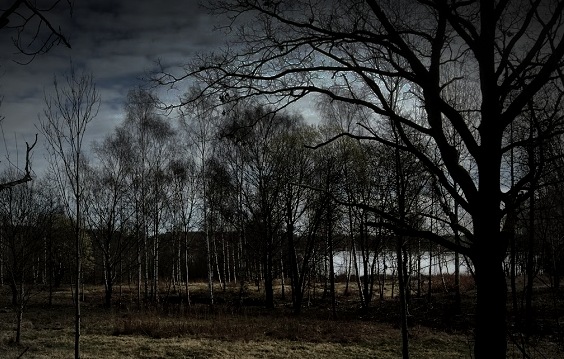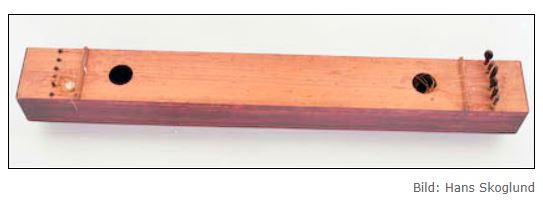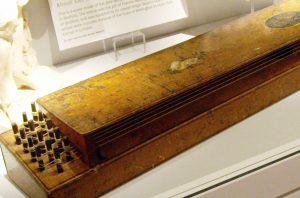Augusta’s Aeolian Harp
“Loddby, 8 May 1847
My sweet, dear Lotten!
…. It is a really beautiful evening, the bay is calm and clear like a mirror, a few stars shine in the clear blue sky, and I have put an Aeolian harp in the window. Have you ever heard one, Lotten? It is so indescribably melancholic when the wind seizes the strings and creates these sad, melodic notes. One can’t help but getting a feeling of sorrow. I imagine myself back in the Romantic times and believe I hear Näcken, the water spirit, playing on his silver harp during evenings like this, when everything in nature is poetry…”
I am still reading through the correspondence between Augusta and her friend Lotten. Augusta is home at her country estate, Loddby. I can imagine her sitting in one of the rooms on the second floor. Through the trees, she can see the bay of Bråviken. It is only May and the trees are still bare. The evenings are lighter and maybe she doesn’t even need a candle in order to write.

“It is a really beautiful evening, the bay is calm and clear like a mirror…” Bråviken seen from Loddby
I continue reading her letter. Sometimes, the handwriting is hard to decipher and on page 3 of Augusta’s letter of 8 May 1847, I struggle with the Swedish word, Eolsharpa. What is that?
“Have you ever heard one, Lotten?”
I certainly haven’t heard one. I haven’t even heard of one.
Now I get curious. First, I find that the instrument is called Aeolian harp in English.
An Aeolian harp is a wind harp. It is named after the Greek god of the wind, Aeolus. Traditionally, they were long wooden boxes (sound boxes) with strings stretched from one end to the other. They were put in windows and the strings would vibrate in the breeze and create sounds.
I find a few images online of old Swedish Aeolian harps.
A more complicated Aeolian harp is on display at The Higgins Museum in Bedford, UK.
I also learn that Wendela Hebbe (b. 1808), the first professional, Swedish, female journalist, and her two sisters, Petronella and Malin, made their own Aeolian harps. They put them in their window, just like Augusta did.
Well, if they could make their own harps, I am sure I can find a YouTube video of how to make one . And I do. All you need is a box, some fishing line, and two pencils or pieces of wood. Of course, this is not how they made them in the 1840s! The first one I make doesn’t work. I think I was just a little too creative. I decide to watch the video again and pay close attention to details.
It only takes a few minutes to make the new harp using a new US Postal Service cardboard box. Time for testing – but, of course, there is no wind!
I continue checking the weather and every time I see leaves moving in some light breeze, I grab my harp and head out. I stay with my ear close to the box, but even if there would have been a sound, there is too much background noise: the constant humming of air-conditioning units, trucks beeping as they back up, cars passing by, a lawnmower, distant police sirens, and a lot of chattering birds. I really can’t hear any harp sounds.
But maybe there was a reason for the harp being set in a window? The air would flow in one direction. How could I simulate that? I go inside and put my harp close to the air-conditioning vent in the living room. And suddenly – my Aeolian harp starts to play. I wouldn’t call it melancholic, rather an eerie sound from the un-tuned strings. It would make sense that the strings should actually be tuned.
And of course, one could build a really nice one to put in one’s garden.
But back to Augusta’s question: Have you ever heard one, Lotten?
Were these harps something new or something old in 1847? The harps couldn’t have been very common or else she wouldn’t have asked the question. Was hers an old one, that had belonged to her family, or had she gotten a new one or bought one? And who made these instruments and during which time period were they popular? I am sure someone has the answers :).



